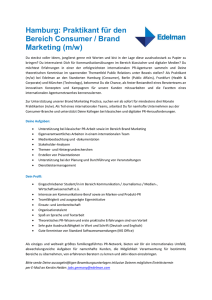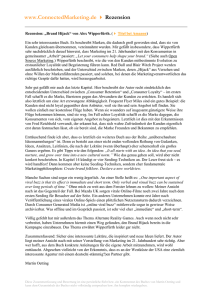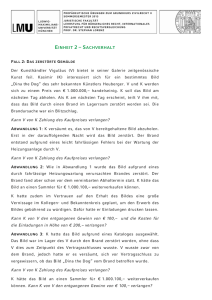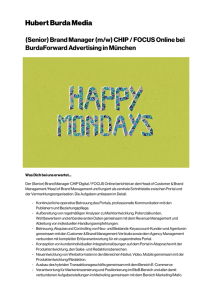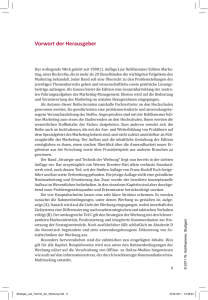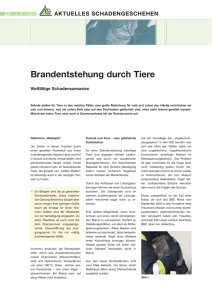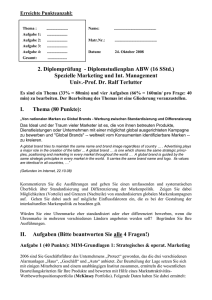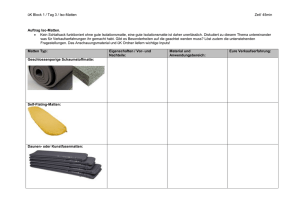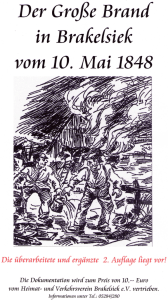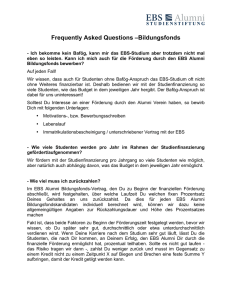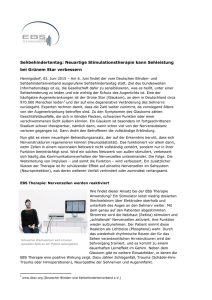Messung von Zahlungsbereitschaften und ihr Einsatz für die
Werbung
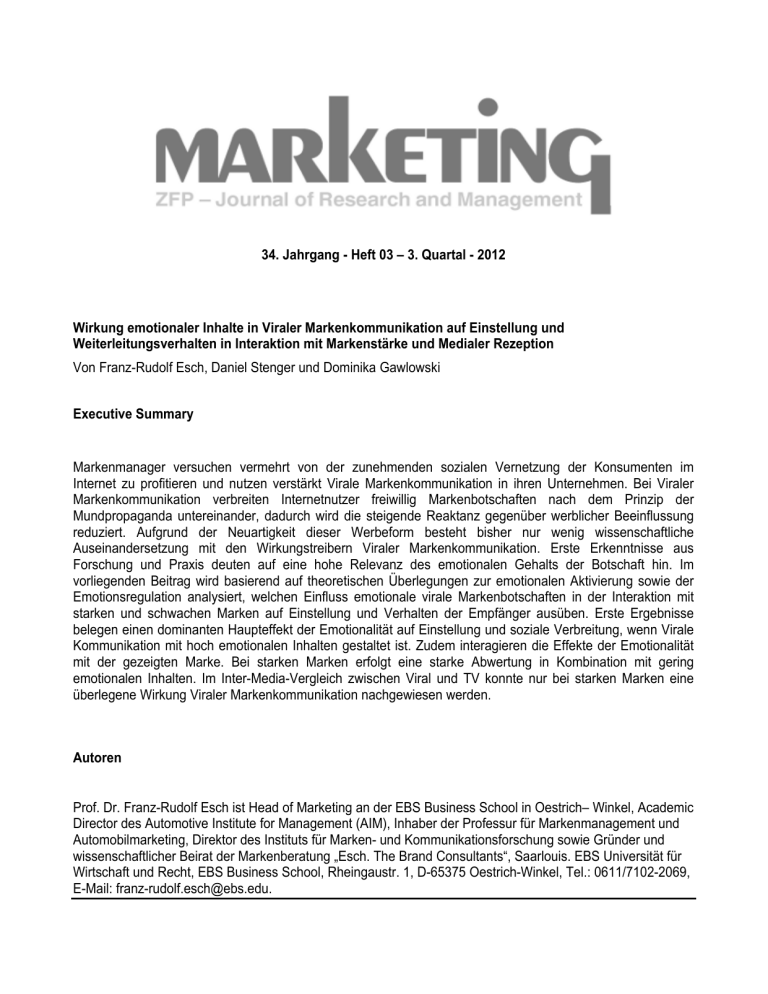
34. Jahrgang - Heft 03 – 3. Quartal - 2012 Wirkung emotionaler Inhalte in Viraler Markenkommunikation auf Einstellung und Weiterleitungsverhalten in Interaktion mit Markenstärke und Medialer Rezeption Von Franz-Rudolf Esch, Daniel Stenger und Dominika Gawlowski Executive Summary Markenmanager versuchen vermehrt von der zunehmenden sozialen Vernetzung der Konsumenten im Internet zu profitieren und nutzen verstärkt Virale Markenkommunikation in ihren Unternehmen. Bei Viraler Markenkommunikation verbreiten Internetnutzer freiwillig Markenbotschaften nach dem Prinzip der Mundpropaganda untereinander, dadurch wird die steigende Reaktanz gegenüber werblicher Beeinflussung reduziert. Aufgrund der Neuartigkeit dieser Werbeform besteht bisher nur wenig wissenschaftliche Auseinandersetzung mit den Wirkungstreibern Viraler Markenkommunikation. Erste Erkenntnisse aus Forschung und Praxis deuten auf eine hohe Relevanz des emotionalen Gehalts der Botschaft hin. Im vorliegenden Beitrag wird basierend auf theoretischen Überlegungen zur emotionalen Aktivierung sowie der Emotionsregulation analysiert, welchen Einfluss emotionale virale Markenbotschaften in der Interaktion mit starken und schwachen Marken auf Einstellung und Verhalten der Empfänger ausüben. Erste Ergebnisse belegen einen dominanten Haupteffekt der Emotionalität auf Einstellung und soziale Verbreitung, wenn Virale Kommunikation mit hoch emotionalen Inhalten gestaltet ist. Zudem interagieren die Effekte der Emotionalität mit der gezeigten Marke. Bei starken Marken erfolgt eine starke Abwertung in Kombination mit gering emotionalen Inhalten. Im Inter-Media-Vergleich zwischen Viral und TV konnte nur bei starken Marken eine überlegene Wirkung Viraler Markenkommunikation nachgewiesen werden. Autoren Prof. Dr. Franz-Rudolf Esch ist Head of Marketing an der EBS Business School in Oestrich– Winkel, Academic Director des Automotive Institute for Management (AIM), Inhaber der Professur für Markenmanagement und Automobilmarketing, Direktor des Instituts für Marken- und Kommunikationsforschung sowie Gründer und wissenschaftlicher Beirat der Markenberatung „Esch. The Brand Consultants“, Saarlouis. EBS Universität für Wirtschaft und Recht, EBS Business School, Rheingaustr. 1, D-65375 Oestrich-Winkel, Tel.: 0611/7102-2069, E-Mail: [email protected]. Dr. Daniel Stenger ist Projekt Manager bei Homburg & Partner, internationale Management Beratung mit Schwerpunkten Marketing, Sales und Pricing in Mannheim und ehemaliger externer Doktorand an der Professur für Marketing an der Justus-Liebig-Universität Gießen. Homburg & Partner, Harrlachweg 3, D-68163 Mannheim, Tel. 0621/1582-431, E-Mail: [email protected]. Dominika Gawlowski ist wissenschaftliche Mitarbeiterin am Automotive Institute for Management (AIM) und Doktorandin von Professor Esch an der EBS Business School, Rheingaustraße1, D-65375 Oestrich-Winkel, Tel. 0611/71022065, E-Mail: [email protected]. Executive Summary Brand managers are increasingly trying to take advantage of the growing interaction of consumers in the Internet and thus turn on forms of viral brand communication. In contrast to traditional forms of brand communication, Internet users spread brand messages on the principle of voluntary word-of-mouth among themselves, thereby decreasing the reactance towards promotional influence. Due to the novelty of this form of advertising, only few scientific studies dealt with success factors of viral brand communication. This article focuses on the effects of emotions, triggered by viral messages. Based upon theoretical considerations on emotional activation and regulation of emotions, the influence of emotional viral messages on attitude and forwarding behavior of the recipient are examined. It is possible to deduce from the results that there is a dominant effect on attitude and social information spread coming from emotional-driven viral brand communication. The effects of emotions also interact with the respective brand strength. Low emotional content combined with a strong brand results in negative attitude effects. Expected superior effects of viral brand communication in comparison to TV could only be proven for strong brands. 2
